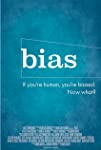Eye For Film >> Movies >> Bias (2018) Film Review
Bias
Reviewed by: Jennie Kermode

Robin Hauser opens her documentary about prejudice with a riddle. It's an old one, around since at least the 1970s, designed to surprise the person to whom it's addressed by making them abruptly conscious of a particular unconscious assumption they may have made. What's interesting about this particular riddle is that it has more than one answer. When it first emerged, the way society was shaped meant it was reasonable to assume that, in most societies, there was only one. Today it's often used in equalities training to illustrate that society has changed but unconscious prejudice still exists. Hauser references the original answer but seems unaware of the wider possibilities, a failing that works in her favour because it illustrates the point that the rest of the film is seeking to address.
What does it mean to have bias? Examples of overt sexism, racism or homophobia are easy to identify, but there's a lot more to it than this. Firstly, there are many other types of prejudice which we might not think of it the same way but which can still be very damaging, such as prejudice against people because they're fat or old. Secondly, there's unconscious prejudice, which is usually (but not always - a important caveat that's missing in the film) absorbed from the people and media around us as we grow up. We all have this to some degree, but it can be very hard to spot. It might mean, for instance, that you feel more comfortable when your kids are being looked after by someone whose skin colour is the same as yours (even if you would never dream of insulting somebody because of their skin colour), or that you assume that a lot of people with chronic illnesses could be more productive if they just tried harder. Assumptions like these have real world effects, making it harder for people in stigmatised groups to secure jobs and promotions, find places to live, access healthcare or even stay out of prison.

One way we can identify the presence of unconscious prejudice is by using statistics. For instance, if people of colour are routinely given longer prison sentences than white people for less serious crimes (Hauser's film is focused on the US but this is also true in the UK), something is clearly going wrong. But here's an interesting thing: this particular example, where it's used in the film, doesn't just reflect direct human prejudice. It's the result of courts concerned about human bias trying to work around it by bringing in artificial intelligence to manage sentencing. If that doesn't scare you in itself, here's the rub: the AI is also racist.
How did this happen? The trouble is that AIs learn using big data sets which have themselves often been shaped by human bias. They have to be made aware of their prejudices in order to start filtering them out, but it's only fairly recently that we've started to do that work in humans. Hauser takes us inside projects which are using virtual reality to help (ambulant) white people get a taste of what it's like to move through social spaces with darker skin. It's one of several such experiments getting good results, but of course it only works on people who are willing to try it. Less interested people can sometimes be reached through workplace training, but the film's experts note that nothing is as effective as simply having a diverse mix of colleagues and social contacts so that friendly connections can form naturally and people can learn from experience that they actually have a lot in common with the people they thought of as different.
Most of the expert testimony here is strong, though there are places when ideas that are actually controversial are presented as established truths, such as the idea that, in prehistory, members of other tribes would be seen as enemies (rather than, say, as potential trading partners it was best to be a bit wary of). Hauser states at the start that she's going to make race and sex her main points of focus, which is sensible, as this is a huge subject. Her various speakers provide some context on these issues but most viewers are likely to be familiar with this already. It's the discussions of how people can identify and explore their own prejudices that are the most valuable and interesting parts of the film, and they're likely to leave viewers with quite a bit to think about afterwards.
Although much of the film is comprised of talking heads, Hauser keeps it visually interesting, demonstrating an eye for detail. Some of her subjects have marvellously interesting faces which tell us as much as their words do. This helps to make the film accessible to people who are encountering a lot of its ideas for the first time. The language is kept relatively simple, avoiding jargon, and reference is made to implicit association tests which you might want to go and try online afterwards (though they're mostly aimed at Americans so people elsewhere may find some of the material tricky to engage with). if people have told you that you're prejudiced and you don't see how but you wonder if you've missed something, this film is a good starting point to help you figure it out.
Bias is out on Digital and On-Demand on April 14th from KimStim/1091 Media.
Reviewed on: 11 Apr 2020


















